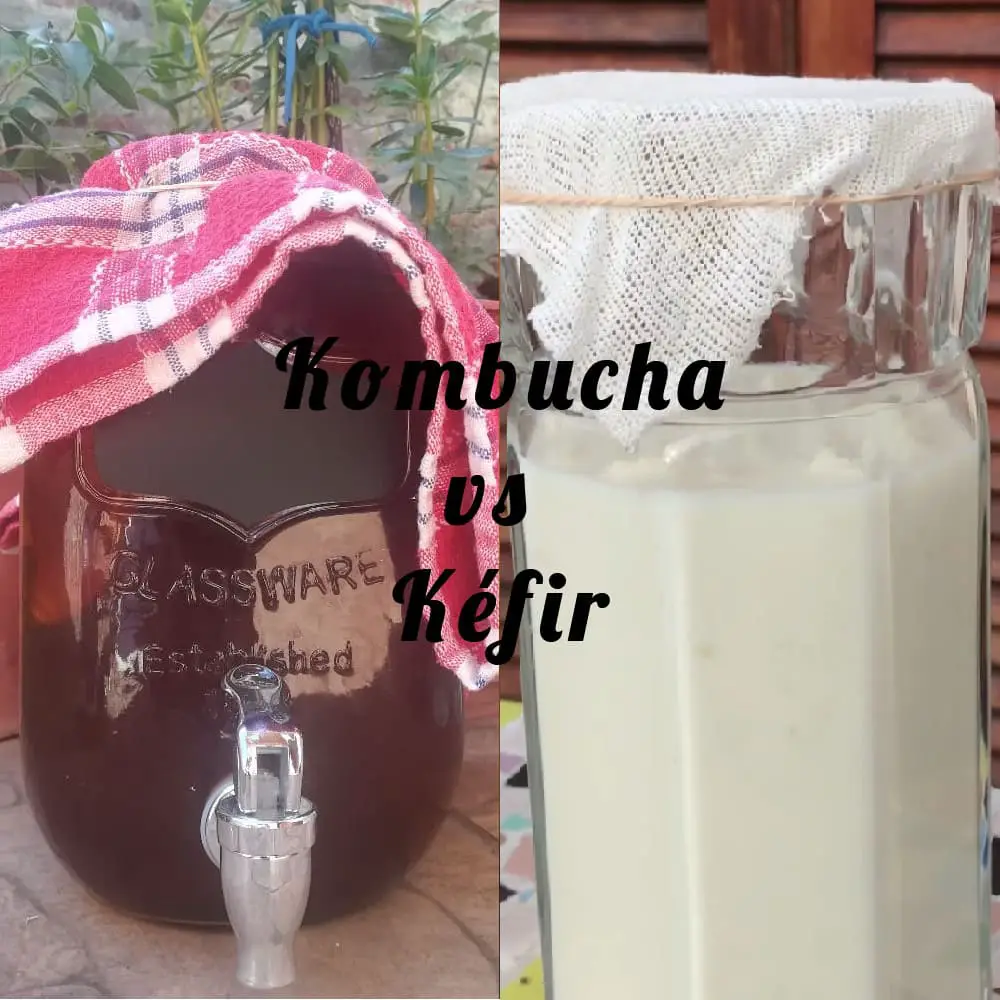Just as kombucha is a tea, kefir is also a kind of drink that can be prepared at home, but in the latter case, it is a drink that is made from the fermentation of milk, and like kombucha, it has microorganisms.
It is said that they are related because they are drinks that are beneficial for the body because they are rich in probiotics. Kombucha is also misnamed tea kefir.
Likewise, it should be noted that in the case of both drinks, it is important that they are prepared correctly and with caution, otherwise these benefits will be the opposite for the body. To get a clearer idea of these drinks, pay attention to this.
Why are they confused?
Kefir and kombucha are two different types of beverages that are often confused because they are obtained from fermentation. In the case of kefir, it is a drink that is obtained from the fermentation of milk, while kombucha is obtained from the fermentation of tea with yeasts and bacteria.
They are also confused by the fact of a bad nomenclature, since in some parts of the world kombucha is misnamed tea kefir, since as we have said, kombucha is a fermentation of tea.
Similarly, they are drinks that are usually consumed because they are recommended to improve many of the functions of the body, as well as it is recommended to ingest for those who seek to lead a healthier life.
Main differences: Kombucha vs Kefir
It is clear that both kombucha and kefir are different products from each other, with factors in common, but at the end of the day they are fermented drinks that are far from each other. Let’s look at some of the main differences.
- Raw material
Kombucha is produced based on tea as the main ingredient, while for kefir, the fuel for its production is lactose, from milk.
- Nutrition
Kombucha is a drink low in calories, fiber, protein and fat, in general it is low in its nutritional contribution, but in terms of vitamins it is very rich[1]. Kefir, on the other hand, is high in calories, and also has a higher concentration of protein and fat.
- Taste and texture
Kefir is creamy, slightly acidic, and is often compared to a diluted yogurt. Kombucha is carbonated and has a taste similar to apple cider and a characteristic viscous live culture often found at the bottom.
- Smell
The smell of kefir is really strong, you feel its acid, but as it is made from milk it feels in turn as if it were cheese, and personally, it is what a regular consumer of kefir does not do. Kombucha has a clear vinegar essence.
- Preparation
As we mentioned, kefir and kombucha are prepared from different ingredients, as well as their fermentation time also changes. In the case of kombucha, it should be left to ferment for about 2 weeks, while kefir is fermented for up to 18-24 hours.
- Origin
In the case of kombucha, it is said that it is a drink that appeared in China, by an emperor, while kefir is a drink that is said to have originated in Mexico, being one not as old as the one mentioned first.
What are the disadvantages of kefir and kombucha?
Kefir, being a product that has milk as its raw material, can be a product that causes damage to people who are allergic to milk, that is, who are lactose intolerant, since, regardless of whether lactose is consumed in its fermentation, there is no evidence that it is consumed totally.
Also being a product with a higher sugar content, it can have consequences of obesity or type 2 diabetes. [2]
A small study in healthy adults found that while kefir has a low to moderate glycemic index, it has a high insulin index, meaning it can increase blood insulin levels more than other foods. [3]
As for kombucha, we have an article entirely dedicated to the contraindications of kombucha that you can follow in the link.
Which is better, kefir or kombucha?
That will depend on the perspective in which you are, since we told you that kefir is much richer in macronutrients, which makes it much more caloric. In this context, a person looking to reduce their fat percentage may be more inclined towards kombucha, but if they are a person looking to increase their muscle mass, perhaps they have a greater predilection for kefir.
So, both have benefits and contraindications, therefore, you have to see what your goals are to maintain a healthy body and see how each of them can contribute on the way to achieving them.
Can I consume both on the same day?
The answer is yes, there is no problem in both being part of your daily diet, however, you always have to be aware of the recommended doses.
Personally, I recommend that you do not mix both in the same meal, or the same time, since being both drinks with certain percentages of sugar, you may exceed the recommended limit of sugar per meal along with other foods.
For the rest, feel free to consume these two probiotic drinks, which as we mentioned, are complementary.
Are the probiotics in kefir and kombucha the same?
No, but they have some in common.
Bacteria commonly found in kombucha include acetic acid (AAB) bacteria belonging to the genera Acetobacter, Gluconacetobacter and Gluconobacter, as well as lactic acid bacteria. Most of the yeasts associated with kombucha are Saccharomyces species, although other yeast genera may also be present. [4]
The microbial community of kefir comprises a complex mixture of lactic acid bacteria (LAB) (Leuconostocs, Lactobacilli, Streptococci, Lactococci, Enterobacter, Acinetobacter, Enterococcus and Pseudomonas spp.), acetic acid bacteria and yeasts (Kluyveromyces, Candida, Torulopsis, Rhodotorula and Zygosaccharomyces). [5]
Tell us what you thought of our article, as we have reached the end of this Kombucha vs Kefir comparison. For now, we have other very interesting posts that will leave you perplexed.

